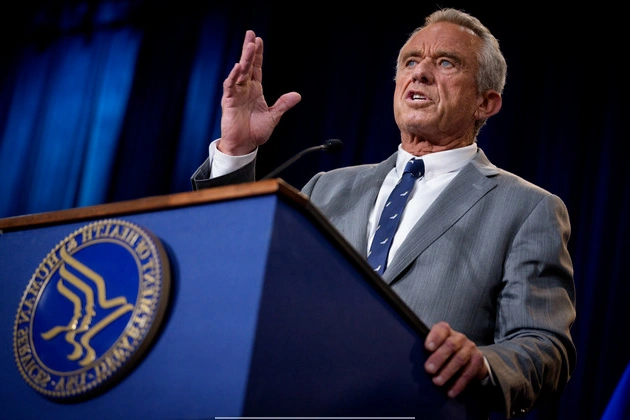
The CDC recently updated its recommendations on Covid-19 vaccines for ‘healthy’ children and pregnant women, signaling a significant shift in vaccination guidance. Health and Human Services Secretary Robert F. Kennedy Jr. shared this update, highlighting the evolving landscape of vaccine policies.
Key Changes in CDC’s Recommendations
Previously, the CDC advised Covid-19 vaccination for all individuals aged six months and older, including pregnant women. However, concerns raised by experts like Kennedy questioned the safety and necessity of these vaccines, especially for certain demographic groups such as young men at risk of heart inflammation.
The latest data from the CDC reveals a decline in Covid vaccine uptake across the U.S., indicating a shift in public perception and decision-making regarding vaccination.
Expert Perspectives on the CDC Update
Commenting on the recent decision, Kennedy, alongside FDA Commissioner Marty Makary and NIH Director Jay Bhattacharya, emphasized the lack of clinical evidence supporting repeated booster shots in children. This move diverges from the CDC’s conventional approach to vaccine recommendations that typically involve expert panel reviews.
Georges Benjamin from the American Public Health Association expressed concerns over the deviation from standard advisory committee processes, raising questions about vaccine accessibility and insurance coverage implications for healthy children and pregnant women.
Global Perspectives on Covid Vaccination
While the World Health Organization continues to advocate for Covid vaccination in pregnant women, immunocompromised individuals, and those with underlying health conditions, the debate on booster efficacy remains ongoing.
Vinay Prasad, a prominent vaccine regulator, stresses the importance of conducting randomized trials to evaluate the performance of new Covid boosters in diverse populations, especially younger and healthier individuals.
Future Directions in Vaccine Approval
The FDA’s recent framework for Covid-19 vaccines underscores a cautious approach to approving new shots, prioritizing older adults and individuals with health conditions for initial evaluations. The emphasis on extensive trials for younger demographics reflects a commitment to evidence-based decision-making.
Marty Makary’s stance on Covid vaccination aligns with a call for new evidence before recommending shots to young, healthy individuals, highlighting the need for continuous evaluation and data-driven policies.
Expert Reactions and Ethical Considerations
Contrasting opinions among public health experts like Mark Turrentine and Arthur Caplan underscore the ethical complexities of vaccine decisions. While some advocate for broader vaccination coverage to prevent severe Covid outcomes, others caution against hasty recommendations without robust data.
Dr. Rich Besser’s concerns about insurance coverage and access to vaccines for children underscore the broader implications of vaccination policy changes on healthcare equity and affordability.
As the debate continues on the optimal vaccination strategies for different populations, the CDC’s recent updates signal a shift towards evidence-based decision-making and a nuanced approach to vaccine recommendations.











